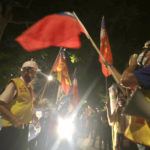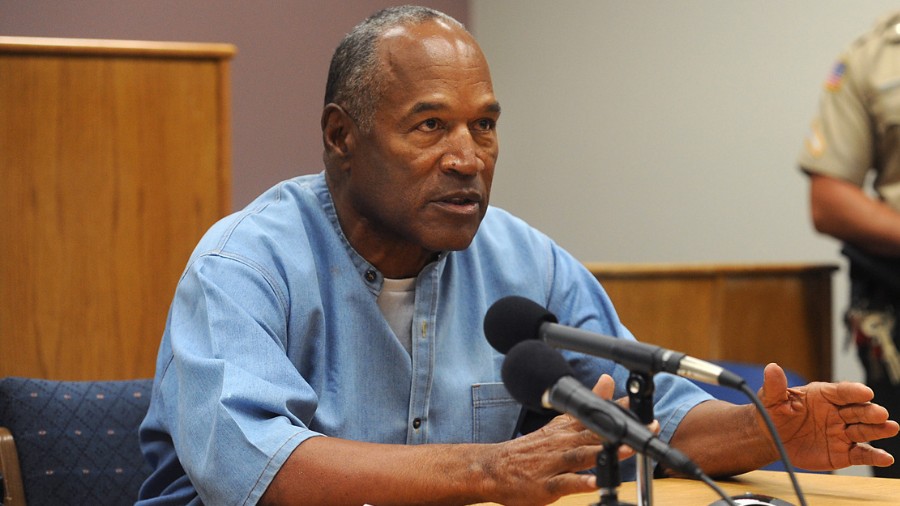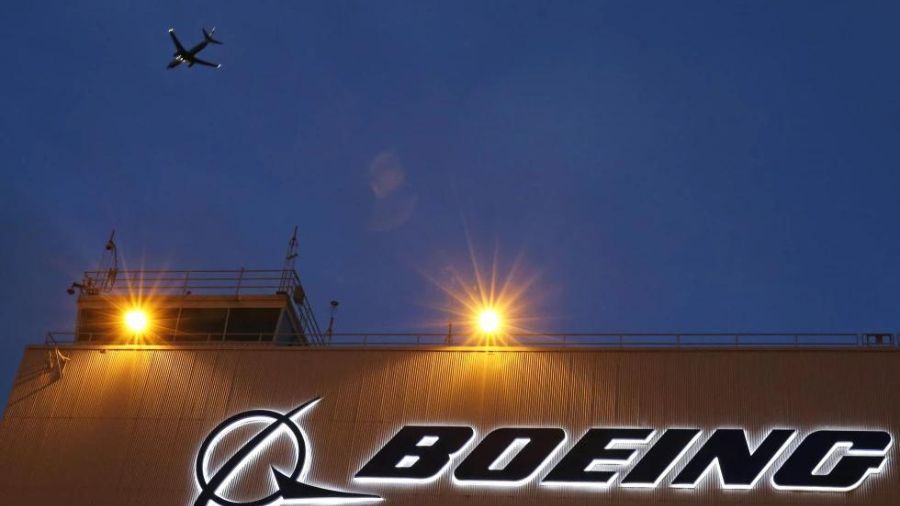US-China ties on a precipice after Pelosi visit to Taiwan
Aug 3, 2022, 12:07 AM | Updated: Aug 4, 2022, 4:30 am

In this photo released by the Taiwan Ministry of Foreign Affairs, U.S. House Speaker Nancy Pelosi at right reacts to Chen Chu, the President of the Control Yuan and Chair of the National Human Rights Commission, during a visit to a human rights museum in Taipei, Taiwan on Wednesday, Aug. 3, 2022. U.S. House Speaker Nancy Pelosi, meeting leaders in Taiwan despite warnings from China, said Wednesday that she and other members of Congress in a visiting delegation are showing they will not abandon their commitment to the self-governing island. (Taiwan Ministry of Foreign Affairs via AP)
(Taiwan Ministry of Foreign Affairs via AP)
WASHINGTON (AP) — U.S.-China relations are teetering on a precipice after House Speaker Nancy Pelosi’s visit to Taiwan.
Pelosi received a rapturous welcome in Taipei and was applauded with strong bipartisan support in Washington, despite the Biden administration’s misgivings. But her trip has enraged Beijing and Chinese nationalists and will complicate already strained ties even after her departure.
Already, China is preparing new shows of force in the Taiwan Strait to make clear that its claims are non-negotiable on the island it regards as a renegade province. And, as the U.S. presses ahead with demonstrations of support for Taiwan, arms sales and diplomatic lobbying, the escalating tensions have raised the risks of military confrontation, intentional or not.
And the trip could further muddle Washington’s already complicated relationship with Beijing as the two sides wrest with differences over trade, the war in Ukraine, human rights and more.
Wary of the reaction from China, the Biden administration discouraged but did not prevent Pelosi from visiting Taiwan. It has taken pains to stress to Beijing that the House speaker is not a member of the executive branch and her visit represents no change in the U.S. “one-China” policy.
That was little comfort for Beijing. Pelosi, who is second in line to the U.S. presidency, was no ordinary visitor and was greeted almost like a head of state. Taiwan’s skyline lit up with a message of welcome, and she met with the biggest names on the island, including its president, senior legislators and prominent rights activists.
Chinese officials were enraged.
“What Pelosi has done is definitely not a defense and maintenance of democracy, but a provocation and violation of China’s sovereignty and territorial integrity,” Foreign Ministry spokesperson Hua Chunying said after her departure.
“Pelosi’s dangerous provocation is purely for personal political capital, which is an absolute ugly political farce,” Hua said. “China-US relations and regional peace and stability is suffering.”
The timing of the visit may have added to the tensions. It came ahead of this year’s Chinese Communist Party’s Congress at which President Xi Jinping will try to further cement his power, using a hard line on Taiwan to blunt domestic criticism on COVID-19, the economy and other issues.
Summoned to the Foreign Ministry to hear China’s complaints, U.S. Ambassador Nicholas Burns insisted that the visit was nothing but routine. “The United States will not escalate and stands ready to work with China to prevent escalation altogether,” Burns said, according to the State Department.
The White House also said that Pelosi’s visit “doesn’t change anything” about the U.S. posture toward China and Taiwan. Press secretary Karine Jean-Pierre said the U.S. had expected the harsh reaction from China, even as she called it unwarranted.
“We are going to monitor, and we will manage what Beijing chooses to do,” she added.
Alarmed by the possibility of a new geo-strategic conflict at the same time the West sides with Ukraine in its resistance to Russia’s invasion, the U.S. has rallied allies to its side.
The foreign ministers of the Group of 7 industrialized democracies released a statement Wednesday essentially telling China — by the initials of its formal name, the People’s Republic of China — to calm down.
“It is normal and routine for legislators from our countries to travel internationally,” the G-7 ministers said. “The PRC’s escalatory response risks increasing tensions and destabilizing the region. We call on the PRC not to unilaterally change the status quo by force in the region, and to resolve cross-Strait differences by peaceful means.”
Still, that status quo — long identified as “strategic ambiguity” for the U.S. and quiet but determined Chinese opposition to any figment of Taiwanese independence — appears to be no longer tenable for either side.
“It’s getting harder and harder to agree on Taiwan for both Beijing and Washington,” said Jean-Pierre Cabestan, an emeritus professor at Hong Kong Baptist University.
In Taipei and the U.S. Congress, moves are afoot to clarify the ambiguity that has defined U.S. relations with Taiwan since the 1970s. The Senate Foreign Relations Committee will soon consider a bill that would strengthen relations, require the executive branch to do more to bring Taiwan into the international system and take more determined steps to help the island defend itself.
Writing in The New York Times, committee Chairman Robert Menendez, D-N.J., lambasted China’s response to Pelosi’s visit.
“The result of Beijing’s bluster should be to stiffen resolve in Taipei, in Washington and across the region,” he said. “There are many strategies to continue standing up to Chinese aggression. There is clear bipartisan congressional agreement on the importance of acting now to provide the people of Taiwan with the type of support they desperately need.”
But China appears to be pressing ahead with steps that could prove to be escalatory, including live-fire military exercises planned for this week and a steady uptick in flights of fighter jets in and near Taiwan’s self-declared air defense zone.
“They are going to test the Taiwanese and the Americans,” said Cabestan, the professor in Hong Kong. He said the actions of the U.S. military in the area, including a naval force led by the aircraft carrier USS Ronald Reagan, will be critical.
China had ratcheted up potential confrontation weeks ago by declaring that the Taiwan Strait that separates the island from the mainland is not international waters. The U.S. rejected this and responded to by sending more vessels through it. Cabestan said that showed that “something had to be done on the U.S. side to draw red lines to prevent the Chinese from going too far.”
Meanwhile, Taiwan is on edge, air raid shelters have been prepared and the government is increasing training for recruits serving their four months of required military service — generally considered inadequate — along with annual two-week annual refresher courses for reservists.
“The Chinese feel that if they don’t act, that the United States is going to continue to slice the salami to take incremental actions toward supporting Taiwan independence,” said Bonnie Glaser, a China expert at the Asia Program at the German Marshall Fund.
She said that domestic U.S. support for Taiwan actually gives China added incentive to take a strong stance: “China does feel under pressure to do more to signal that this is an issue in which China cannot compromise.”
Despite the immediate concerns about escalation and potential miscalculation, there are others who don’t believe the damage to U.S.-China ties will be more long-lasting than that caused by other, non-Taiwan-related issues.
China is “going to raise a huge fuss and there will be military exercises and there will be embargoes on importing Taiwan goods. And after the shouting is over, you will see a gradual easing,” said June Teufel Dreyer, a Chinese politics specialist at the University of Miami.
“The situation never goes back to completely normal, whatever normal is, but it will definitely die down,” she said.
___
AP writers Zeke Miller in Washington, Joe McDonald in Beijing and David Rising in Phnom Penh, Cambodia, contributed to this report.
Copyright © The Associated Press. All rights reserved. This material may not be published, broadcast, rewritten or redistributed.




















